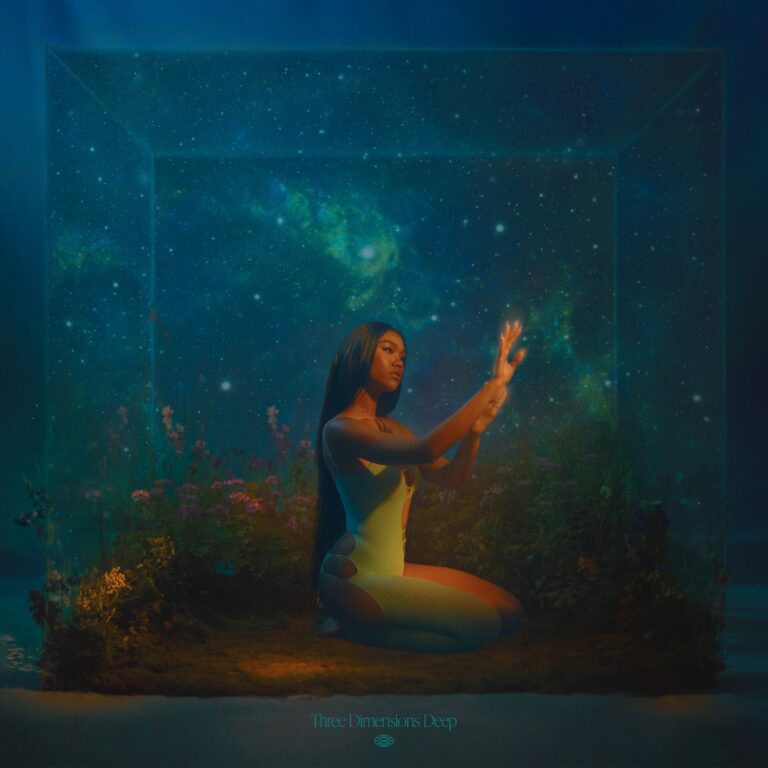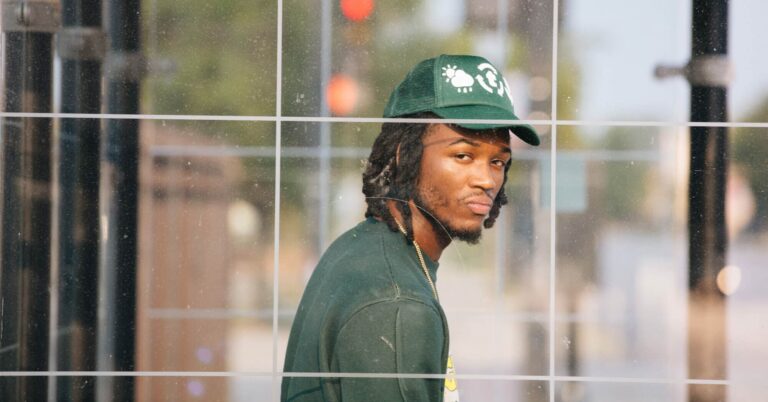Amber Mark’s long-awaited debut album drips with ambition. This isn’t a surprise considering the New York-based singer-songwriter’s first two EPs displayed the kind of emotional honesty and sleek confidence most artists don’t reach until much later in their careers: 2017’s 3:33 AM was a personal meditation on the loss of her mother, while 2018’s Conexão EP flitted elegantly between styles as it traced a relationship from beginning to end. But you don’t even need to listen to Three Dimensions Deep in full to recognize that Mark is ready to take things to another level: the hour-long album spans 17 tracks, using her interest in astrophysics and sci-fi to elevate her journey of self-actualization. “It’s all so cinematic,” she sings on ‘Cosmic’, trying to make sense of a love whose magnetism seems to transcend space and time. Throughout the record, questions both big and small reveal themselves on the same cosmic scale.
And yet, as impressive as her vocal performances can be – and they consistently are – Mark’s presence remains remarkably down to earth. Her groundedness and vulnerability as a songwriter ensures that no metaphor is too astronomical for the music’s subject matter, employing it instead to evoke tension and serve a grander narrative. Divided into three acts that explore her complicated relationship with the self – within, withheld, and without – Three Dimensions Deep begins by laying out Mark’s insecurities with the promise that they may eventually be transformed. On the first track, ‘One’, she opens up about feelings of career anxiety that cloud her sense of worth, a concern she addresses throughout the album. But over a chopped-up sample of Bobby Bland ‘Dear Bobby (The Note)’, even at this early stage, her grief and uncertainty become inspiration for future growth: “I don’t know if I’ll ever succeed/ I just want you proud of me up above.” She returns to this thought on the lavish funk of ‘Foreign Things’, which arrives halfway through the album and allows Mark a moment of indulgence without losing purpose: “That’s a promise, I’ma make it/ I, on my mama, hand up to the sky.”
Throughout Three Dimensions Deep, stargazing becomes a sort of spiritual compass, a means of navigating overwhelming emotions by placing them in a greater context. But the sky can also serve as a reflection of the singer’s mood, and on the stellar ‘On & On’, she finds herself unable to connect to the vast emptiness above; its colours mirrored in the wistful beauty of the instrumental, a cosmic blanket to her own inadequacy. She doesn’t feel small, only lost and distant, sensing more yet struggling to communicate it. Still, her efforts on the album are largely successful – not only because the songs themselves are tight and satisfying despite their abundance, but because the celestial framework is less about faking ambition than finding the right language to encompass it. Disco synths, agile vocals, and a fiery guitar solo make the existential wonder of ‘What It Is?’ feel both immense and palpable, a song as much about the intensity of a romantic relationship as it is about humanity itself.
As the album progress and ventures further out into space, almost literally, Mark’s explorations are just as playful and compelling. The ethereal, futuristic production on cuts like ‘Out of This World’ and the Prince-channeling ‘Darkside’ is matched by Mark’s versatile voice, which stands out particularly on the couple of songs that gravitate towards one-dimensional beats (‘Healing Hurts’, ‘Worth It’). Her tone can be contemplative and conversational, sultry and poignant. But the energy that drives Three Dimensions Deep never lets up, and the project is less tied to a weighty concept than a singular vision, one where matters of the heart expand into a whole universe. With this rich, deeply engaging debut, Mark proves she’s more than capable of realizing it – and even if all that’s left at the end is a void, she makes the act of staring at it feel like a luxury.










